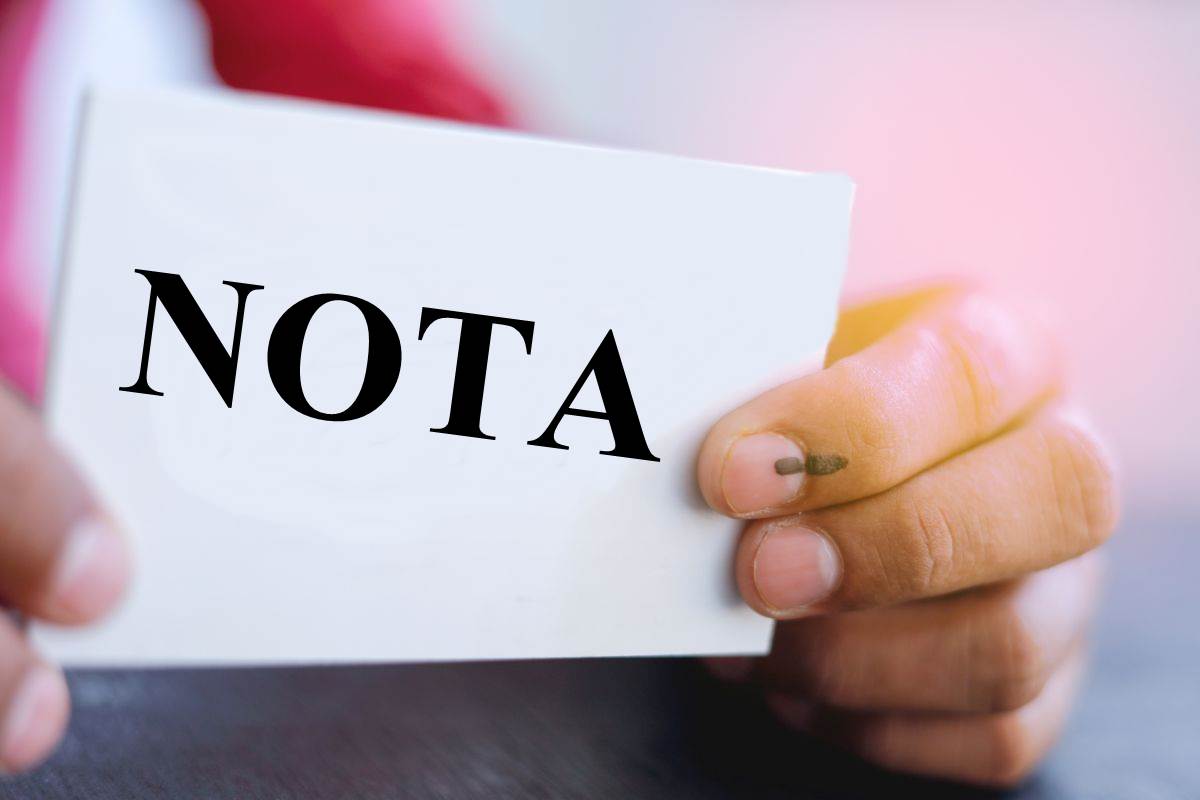Voters choose NOTA over candidates with tainted images
The alarming rate in which voters with NOTA choice is increasing, it is a matter of great concern in the democratic set up.
The right to recall a candidate for failing to fulfil poll promises should be a part of our democratic process

(Photo: Getty Images)
In this highly charged electoral atmosphere, amidst voting and filing of nominations, what is evident are electoral promises or manifestos. These electoral promises are supposed to be made based on certain statistics and prospective policy decisions. It gives us a glimpse of the schemes, welfare measures and what we can expect from the party if chosen to power. They provide a macro view of the kind of country we envision for the next five years. We Indian voters base our choices on these electoral promises, that too also the ones that the media has publicised.
Of the many issues that plague Indian democracy, one is the non-fulfillment of these electoral promises. Unfortunately, Indian voters have based their choice on these promises and they are left with no recourse but to either let the elected government serve out its term or patiently wait for a negative result of a floor test. In both situations, the electorate has no role to play. They become hapless victims of jumlas propagated by political parties to garner support and votes.
We do not have any checks for these promises once people come to power. While independent bodies are coming forward to track the progress of these promises, the larger question remains what after that? What can we as the electoral do? Does not that give the political parties a license to make promises based on their misconceived facts or bad statistics? Yes, we can decide not to vote for them in the next election but that entails a wait for years.
Advertisement
The world is watching the largest democratic elections, and maybe it is time to empower our electorate with the “Right to Recall”. Right to recall is a right to basically ‘de-elect’ the representative from the legislature with direct vote, which is initiated by a minimum number of voters. It is one of the post-election measures to ensure the accountability of representatives to voters. The democratic process alone should check the damage caused to democratic institutions by errant promises of the representatives and hence, there is a need for ‘right to recall’.
Right to recall has been successfully implemented and exercised in the local bodies of some of the states such as Madhya Pradesh, Chhattisgarh, Bihar and Rajasthan. A proper procedure has been laid down in these states for an effective exercise of these rights. India has witnessed a few recall elections at local governance levels in these states also.
Recently a Private Members Bill (Representation of the People (Amendment) Bill, 2016) was introduced by Varun Gandhi for inclusion of the ‘Right to Recall’ against MPs and MLAs within two years of being elected provided 75 per cent of those who voted for them are not satisfied by their performance. But this did not see the light of the day.
We, Indian citizens are part of a dangerous democracy where our votes, based on the First Past the Post Method, are deemed to be reflective of our political will. This means that the wining candidate has to get one vote more than his nearest competitor. This method adopted due to its simplicity and speedy nature has in turn caused erosion of the institution of democracy.
In 2013, the Supreme Court to preserve essence of democracy, recognized the citizens’ right to reject by way of ‘None of the Above (NOTA)’ in Peoples Union for Civil Liberties v. Union of India. Surprisingly, this right has also been rendered toothless by legislative drafting and policy making. Even if a significant section of the electorate chooses NOTA, there are no repercussions because our First Past the Post Method disregards the discontent of the electorate.
It may be noted that right to vote and simultaneously the right to reject, NOTA, has been recognised as an essential component of right to free expression under fundamental rights. Similarly, right to de-elect should also be recognised as a component of free expression. It is well understood that right to de-elect will entail an additional expenditure on the exchequer but this should not act as a deterrent in our quest to have a direct democracy.
In this light, right to recall may pose an effective and true reflection of the will of the citizens of the country. It has the potential to ensure greater accountability and transparency in words and actions by the representatives. Level of inclusiveness and responsibility will also increase among voters. Representatives will be hesitant to make empty promises merely to garner some votes. Owing to constant watch, political manifestos will be reflective of political will based on practical nuances.
The electorate of India needs more power to strengthen the democratic institutions of this country and the Right to recall is a step towards direct democracy where the representatives are elected and de-elected both by the people.
(The writer is a doctoral research scholar, Indian Law Institute.)
Advertisement